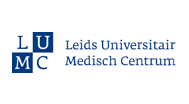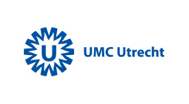NFU proposals for Chapter 15 (academic medical specialists) in new cao
Part of the proposal for the new cao for employees of the university medical centres (UMCs) consists of agreements made with the academic medical specialists (incorporated in Chapter 15).
The Netherlands Federation of University Medical Centres (NFU) is discussing this with the unions and representatives of those involved from all UMCs.
Identified problem areas
There is every reason to focus specifically on the employment and working conditions of the academic medical specialists. They have identified several problem areas that require a response. Only then can the UMCs offer in the future the optimal care that they promote. Specifically, this concerns intense work pressure, the uneven distribution of the load through shifts, concerns about maintaining vitality and insufficient attention to the differing wishes and needs of the various generations. The current agreements are based on the situation in 1999. The composition of this professional group has changed greatly since then and will change further in the coming years. For example, the share of academic medical specialists aged 60 years and older will increase from 16% to 27% in the next 5 years. There is thus a necessity to reach new agreements that align with the changing world both inside and outside the UMCs (such as the sustainable employability of employees and the rise in the statutory pension age).
Concrete agreements
Keeping in mind the responsibility for care and employees, the NFU wants to make concrete agreements with the academic medical specialists in response to the identified problem areas. The basic principle is modernising the working conditions in order to continue investing in the group of academic medical specialists. This modernisation demands a careful process and will take time and consultation. It is absolutely vital, however, to take a step now to change the distribution of the workload of the academic medical specialists. Continuing the current situation without change is undesirable.
Proposed changes for the cao 2024
- All academic medical specialists – regardless of age – who have had standby or on-call shifts at night and have worked in the UMC for at least two hours between midnight and 6 am are entitled to 8 hours of rest.
- Every academic medical specialist has the option to stop shift work voluntarily from the age of 59 years, in exchange for a reduction in the allowances. This will be implemented in stages over a period of three years, so that he or she can adjust to the new situation.
- For individual specialists who are younger than 59, customised agreements can be made about shifts and the reduction in allowances.
- The age limit to be eligible to retain the allowance for working unsociable hours (Toelage Verzwarende Omstandigheden, TVO) and allowance for 24-hour shifts will rise from 60 to 62 years.
- Academic medical specialists aged 62 years or older may only be assigned to evening and night shifts with his or her consent and retention of the TVO. These academic medical specialists will still work day shifts on Saturday and Sunday.
- For academic medical specialists aged 64 years or older, consent is required for all shifts, and they keep the TVO.
- If an academic medical specialist aged 64 years or older voluntarily chooses to do day shifts on Saturday or Sunday, he or she will be compensated with time off in lieu. They keep the TVO.
- The NFU wants to realise an integral revision of Chapter 15 that suits the current and future conditions and provides more clarity about working hours, task distribution (education, research and management along with patient care), allowances, atmosphere at work and generational policy.
These proposed changes should ensure that the workload is distributed more equally over the entire group of academic medical specialists. In addition, there is more room for adjustments in individual cases. The proposals form the first step towards employment conditions that better reflect the changing societal and other conditions.








